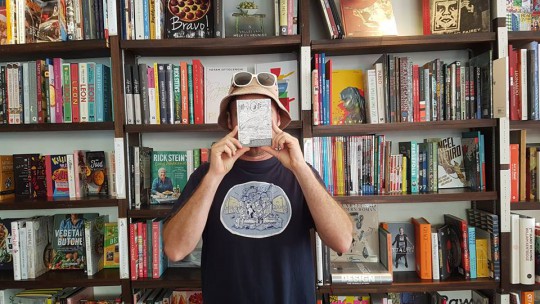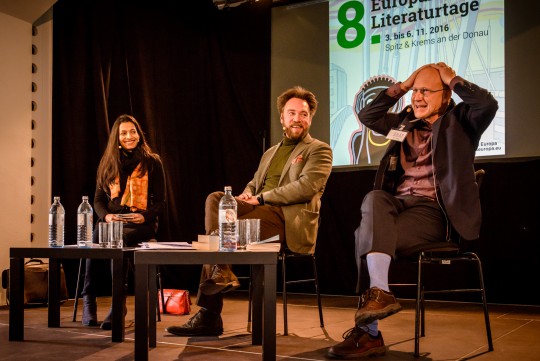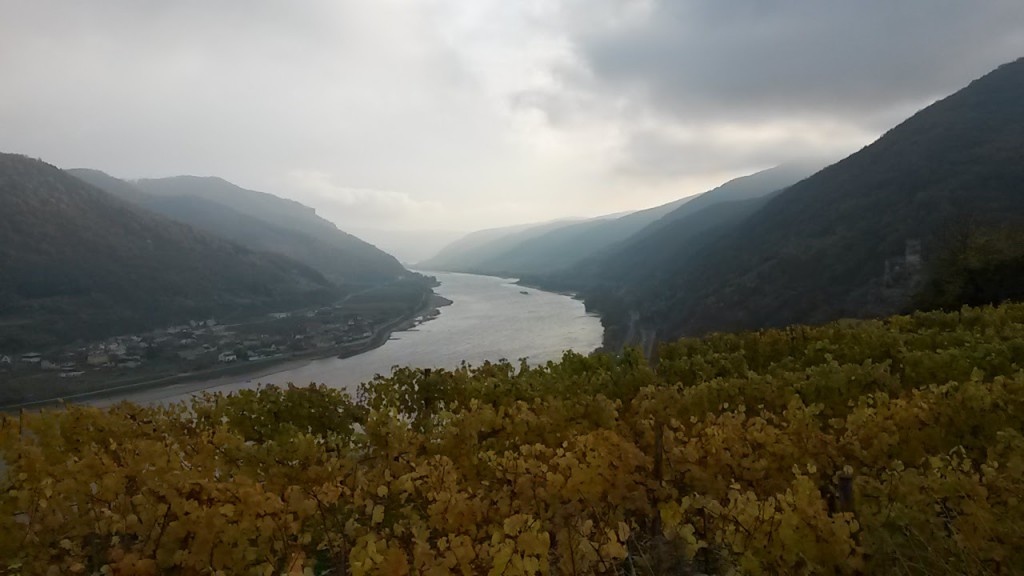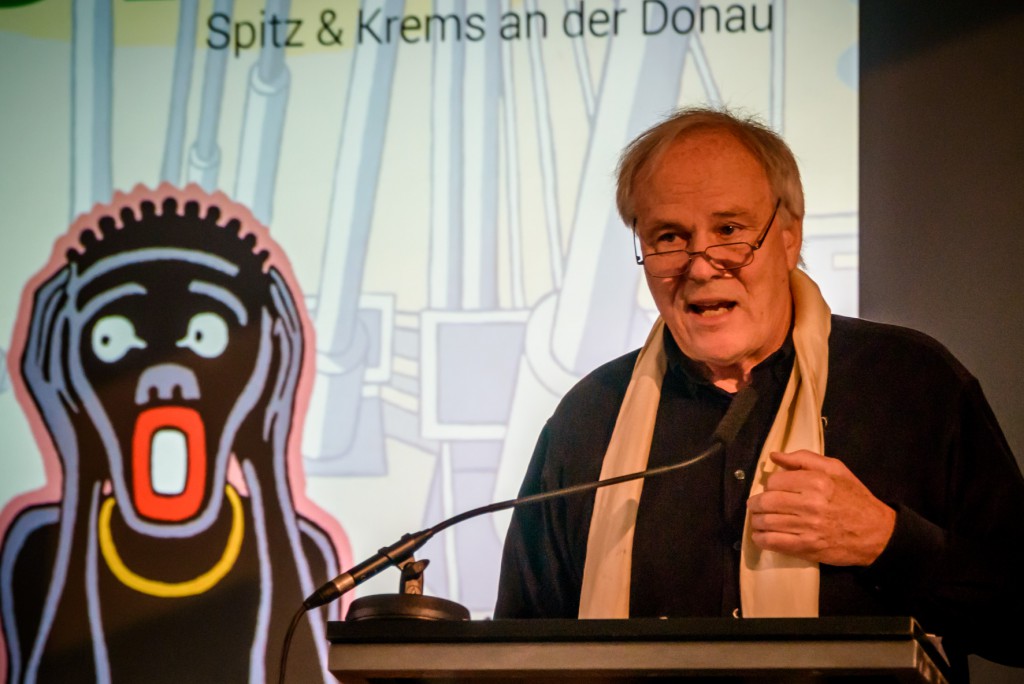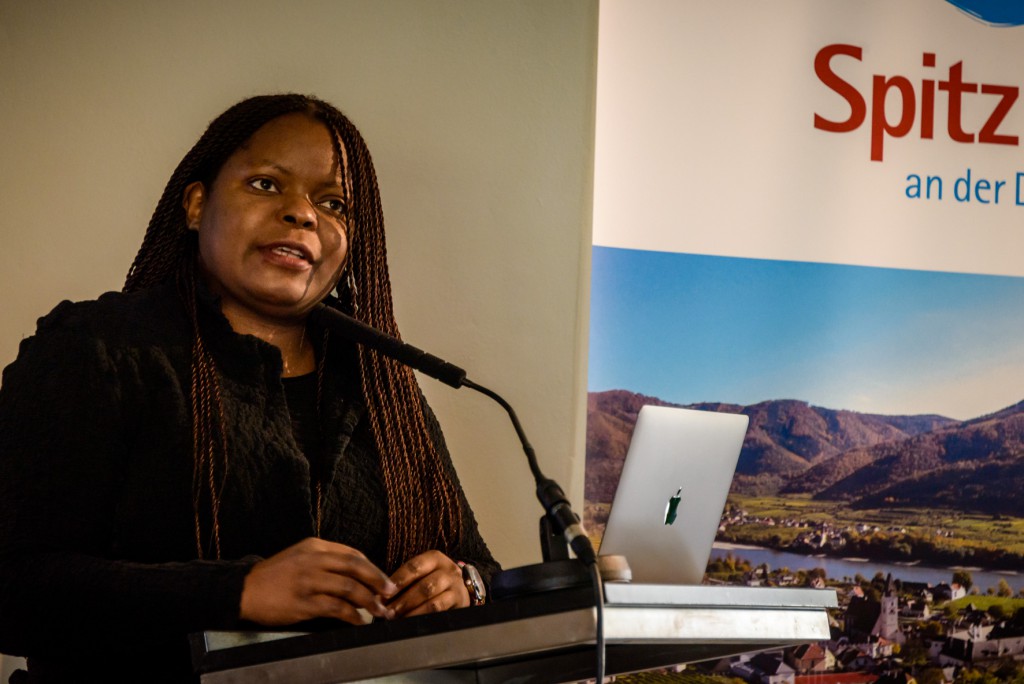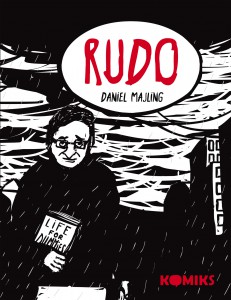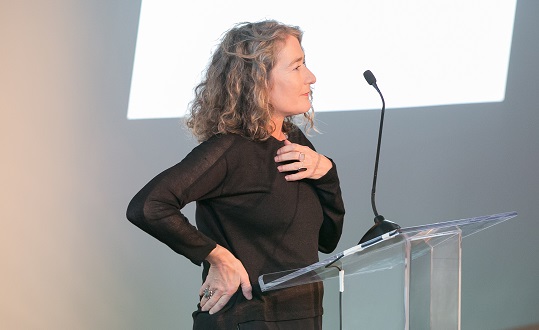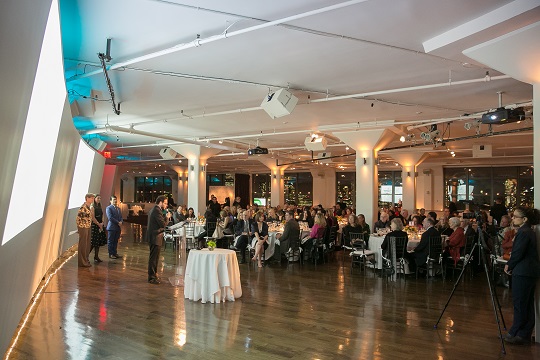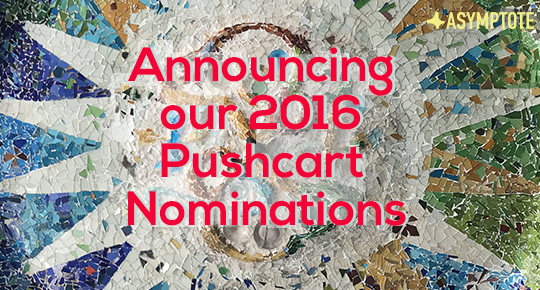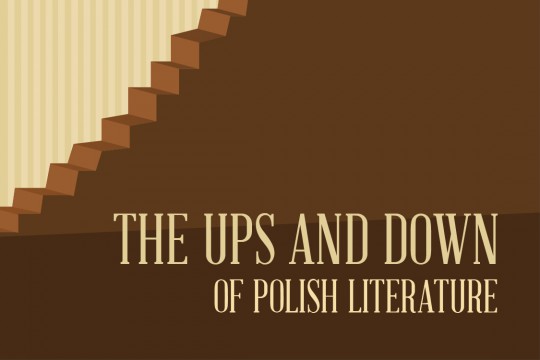Happy Monday, Asymptote readers! We kick off the new week with two literary dispatches from South Africa and Germany.
Asymptote Editor-at-Large Alice Inggs attended the launch of the latest Ons Klyntji issue in Cape Town:
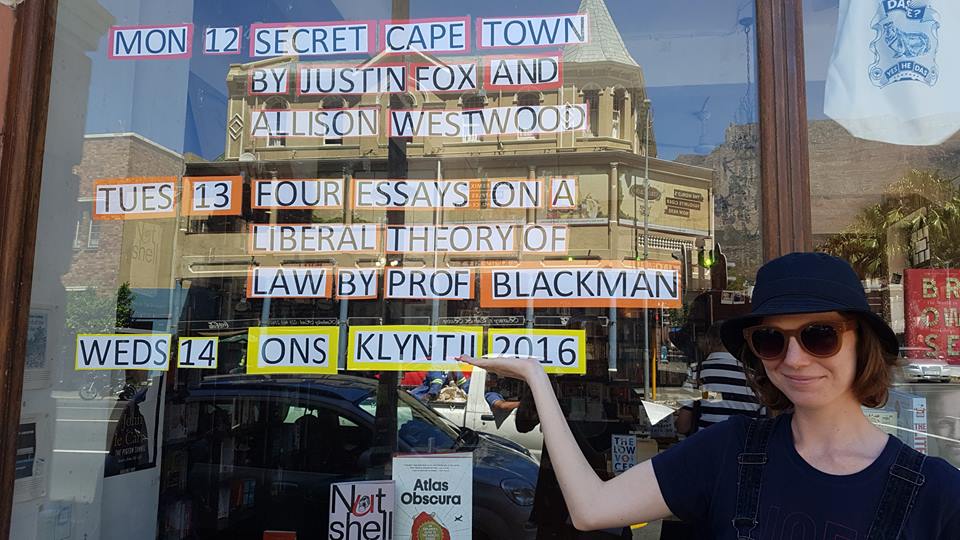
Alice Inggs outside the Book Lounge
“What is Ons Klyntji?” is a question often asked of its editors. The answer? Complicated: the unconventional pocketbook anthology has been through several incarnations throughout its 120-year history. First published in 1896 as the first ever Afrikaans-language publication, it has transformed into a modern literary zine, currently under the editorship of Toast Coetzer, Erns Grundling, and Asymptote Editor-at-Large Alice Inggs, featuring predominantly English and Afrikaans poetry and prose, but also multilingual pieces, translations, and works by graphic designers and fine artists.
Over the years, Ons Klyntji has published a number of celebrated South African writers, including Rian Malan (My Traitor’s Heart), Breyten Breytenbach (Confessions of an Albino Terrorist), and musician-author Koos Kombuis (who also edited Ons Klyntji in the 1990s). Recent editions have featured work by established poets Nathan Trantraal (Chokers en Survivors) and Moses Mtileni (ed. Ntsena Loko Mpfula A Yo Sewula); writer Jaco van Schalkwyk (The Alibi Club), and controversial artist Anton Kannemeyer (Bitterkomix), as well as a new generation of poets like Sindi Busuku-Mathese (Loud and Yellow Laughter), Genna Gardini (Matric Rage), and Rosa Lyster (Modern Rasputin).
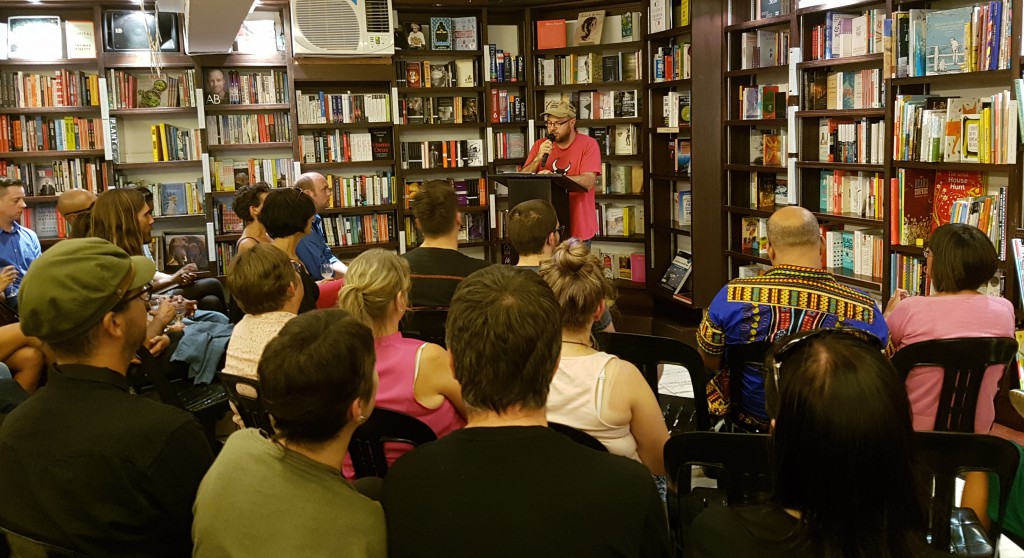
Editor of Ons Klyntji, Erns Grundling
Since 2015, Ons Klyntji has hosted an annual event at the Book Lounge, an independent bookstore in Cape Town. The event acts as a platform for writers featured in Ons Klyntji to share their work with a live audience, as well as a way of promoting the zine to readers and future contributors. The event also helps to underscore the main aim of Ons Klyntji: to encourage South African writers to write—be they eminent authors, emerging poets or even teenagers penning their first, awkward verse.

